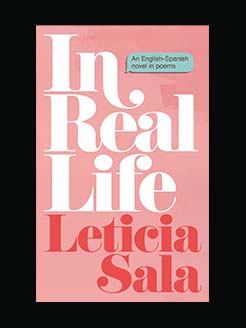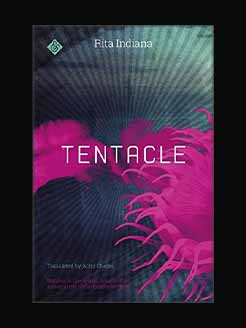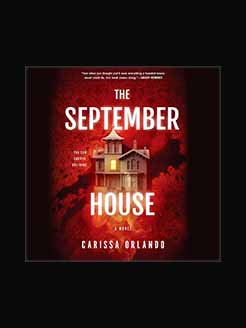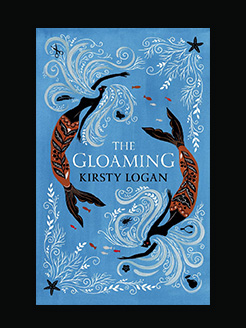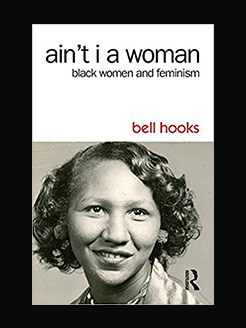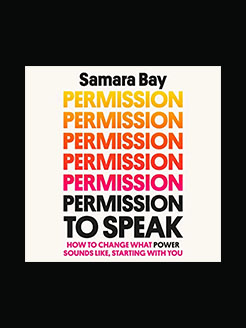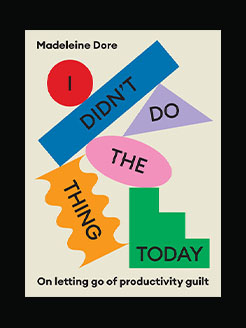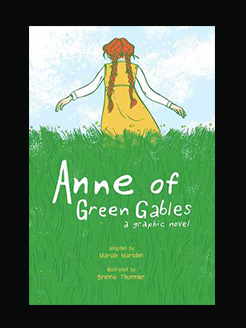Published in 2018
368 pages
8 hours and 41 minutes
Roxane Gay‘s writing appears in Best American Mystery Stories 2014, Best American Short Stories 2012, Best Sex Writing 2012, A Public Space, McSweeney’s, Tin House, Oxford American, American Short Fiction, Virginia Quarterly Review, and many others. She is a contributing opinion writer for the New York Times. She is the author of the books Ayiti, An Untamed State, the New York Times bestselling Bad Feminist, the nationally bestselling Difficult Women and the New York Times bestselling Hunger. She is also the author of World of Wakanda for Marvel. She has several books forthcoming and is also at work on television and film projects.
What is this book about?
Cultural critic and bestselling author Roxane Gay has edited a collection of essays that explore what it means to live in a world where women are frequently belittled and harassed due to their gender, and offers a call to arms insisting that “not that bad” must no longer be good enough.
Detailed review by Schizanthus from goodreads in which she chooses her favorite bit from each essay:
I love that this book exists. I hate that it has to. The title was what initially grabbed my attention: Not That Bad. How many times have I and countless others said that?! Was it because it wasn’t that bad? No. It was that bad but we still live in a world that, on the whole, doesn’t want to know about sexual assault.
It doesn’t quite feel right to say I have a favourite anything where rape culture is concerned so instead I’ll say that the best definition of rape culture I’ve read to date is by Clementine Ford:
“A state of existence in which the impact and reality of sexual violence is minimized while the perpetrators of it are supported by a complex system built on flawed human beliefs, mythologies about gender, and good old fashioned misogyny.”
Usually I’d give each contributor in a book of essays an individual star rating and comment on their writing style or whether I connected with their story or not, but I won’t be doing that here. I’m so proud of everyone that contributed to this book and while some essays impacted me more than others, I’m not comfortable critiquing anyone’s experience of rape culture.
Instead I’ll be sharing a quote from each contributor. I highlighted so much of this book and found it difficult in most cases to choose just one for this review. In the end I decided to share the one that stood out the most when I reread my highlighted passages.
Introduction – Roxane Gay
It was comforting, perhaps, to tell myself that what I went through “wasn’t that bad.” Allowing myself to believe that being gang-raped wasn’t “that bad” allowed me to break down my trauma into something more manageable, into something I could carry with me instead of allowing the magnitude of it to destroy me.
But, in the long run, diminishing my experience hurt me far more than it helped.
Fragments – Aubrey Hirsch
If rape culture had a national sport, it would be … well … something with balls, for sure.
Slaughterhouse Island – Jill Christman
If nothing changes – and in thirty years, not nearly enough has changed – next year, there will be one hundred thousand more assaults on our campuses.
One is too many. One hundred thousand.
& the Truth Is, I Have No Story – Claire Schwartz
This is not about that. This is about everything after.
This is about how, all of a sudden, there was only one after.
The Luckiest MILF in Brooklyn – Lynn Melnick
I know that saying please stop made it no more likely that these things would stop.
Spectator: My Family, My Rapist, and Mourning Online – Brandon Taylor
The only way through all of it was to promise that I would remember it and that at some point, I would make it known what happened there.
I am a hard person because hardness is what comes from a life lived underground.
The Sun – Emma Smith-Stevens
So many times my mind left my body only to return to find it soiled
Sixty-Three Days – AJ McKenna
I resent having to face up to it. I resent having to be a survivor.
“Survivor” is the “special needs” of victimhood. If I say I have survived, I’m fooling nobody. I didn’t.
Only the Lonely – Lisa Mecham
And my hands, my hands. I wrapped them around my shins and pulled in tight and cried and thought about how when you’re hurt, way before you say it, you have to feel it.
What I Told Myself – Vanessa Mártir
I looked over at my daughter, who had moved on to the swings, and that’s when it hit me: I’d been blaming myself for thirty years for what happened to me when I was six.
Stasis – Ally Sheedy
I didn’t go on auditions for films that I felt glorified sex work, that depicted women being sexually abused in a gratuitous way, or that required me to leave my sense of self on the doorstep. (All of these films became huge hits.)
The Ways We Are Taught to Be a Girl – xTx
We learn not to tell everything. We know telling everything will make them see the bad in us. How it is our fault. How we contributed. We fear repercussions, albeit lighter than the ones we will administer to ourselves; slut, bad, ugly, weak, whore, trash, shame, hate. We tell just enough, if we tell at all.
Floccinaucinihilipilification – So Mayer
It’s a conundrum: if you survive, then it – that, the trauma – can’t have been that bad. Being dead is the only way to prove it was. It really was bad. It was terrible. It was so awful there was no way I could survive.
What did this child die of? Shame, mainly. And narrative necessity.
If you survive, you have to prove it was that bad; or else, they think you are.
Surviving is some kind of sin, like floating up off the dunking stool like a witch. You have to be permanently écorchée, heart-on-sleeve, offering up organs and body parts like a medieval saint.
The Life Ruiner – Nora Salem
Perhaps the most horrifying thing about nonconsensual sex is that, in an instant, it erases you. Your own desires, your safety and well-being, your ownership of the body that may very well have been the only thing you ever felt sure you owned – all of it becomes irrelevant, even nonexistent.
All the Angry Women – Lyz Lenz
Anger is the privilege of the truly broken, and yet, I’ve never met a woman who was broken enough that she allowed herself to be angry.
Good Girls – Amy Jo Burns
Much of the furor spread not because a crime occurred, but because these girls had the nerve to say that it had.
A good girl is a quick study, and this is what you, always a good girl, learned: It doesn’t matter how good you are, because a man will always be better.
Utmost Resistance: Law and the Queer Woman or How I Sat in a Classroom and Listened to My Male Classmates Debate How to Define Force and Consent – V.L. Seek
When your truth is so inherently questioned, it is easier to say nothing than anything at all.
Bodies Against Borders – Michelle Chen
The flip side of treating “victims” or “survivors” as subjects of a narrative is that the process of intellectualizing the issue also requires neatly transmuting the subject into the object. And objectifying people who have lived through sexual violence is not a good place to begin, or end, any story – not our own, and not theirs.
Wiping the Stain Clean – Gabrielle Union
Rape is a wound that throbs long after it heals. And for some of us the throbbing gets too loud. Post-traumatic stress syndrome is very real and chips away at the soul and sanity of so many of us who have survived sexual violence.
What We Didn’t Say – Liz Rosema
I don’t even remember his name but I remember what he said – the corner of that page is folded in my memory. I turn right to it.
I Said Yes – Anthony Frame
“It’s your eyes. They’re so … Was that the year it happened?”
Knowing Better – Samhita Mukhopadhyay
She had learned, somewhere in the interim, to do more than simply reveal what had happened to her; she had learned to tell the story of it so that it didn’t become her only story.
Not That Loud: Quiet Encounters with Rape Culture – Miriam Zoila Pérez
Sexual assault is no longer an undercurrent in political life: it shouts at us from news headlines, colors the electoral debates, shapes rally slogans and protest chants. But something doesn’t have to be loud to be deafening, to suck up all the oxygen in the room, to shroud the windows and dim the lights.
Why I Stopped – Zoë Medeiros
Sometimes I see ghosts. The worst ghosts for me are not usually the flashbacks, although those can be pretty bad, but the ones who show me what I might have been if it never happened. It’s like suddenly feeling what it would be like to run on a leg that had never been broken, just for a second, and then it’s gone and the old bone-deep pain is with me again.
Picture Perfect – Sharisse Tracey
For once, I was glad I didn’t have a little sister.
To Get Out from Under It – Stacey May Fowles
What I need is what most women need when they talk about the sexual violence they have endured. I need someone to listen. I need someone to believe me.
Reaping What Rape Culture Sows: Live from the Killing Fields of Growing Up Female in America – Elisabeth Fairfield Stokes
the world, I had learned, was a place that didn’t condemn sexual violence; it accepted and excused it.
Invisible Light Waves – Meredith Talusan
I stayed to prove that he could not affect me
Getting Home – Nicole Boyce
There’s something so naive about insisting that daylight makes a difference. Why do I imagine that violence wears a wristwatch?
Why I Didn’t Say No – Elissa Bassist
Because when a woman challenges a man, then the facts are automatically in dispute, as is the speaker, and the speaker’s license to speak.
